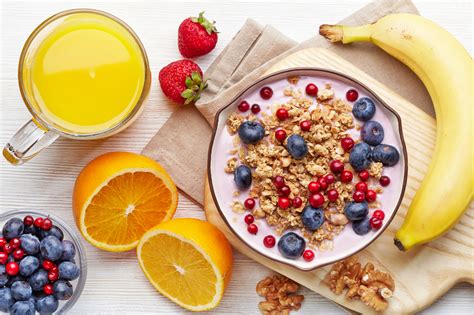Maximize male vitality: What natural habits boost testosterone & energy?

Maintaining peak male vitality, characterized by robust energy levels, mental clarity, and a healthy sex drive, is intrinsically linked to optimal hormone balance, particularly testosterone. As men age, or due to modern lifestyle factors, testosterone levels can naturally decline, leading to a host of undesirable symptoms. The good news is that many powerful, natural habits can significantly impact your body’s ability to produce and utilize this crucial hormone, ultimately boosting your energy and overall well-being without relying on artificial interventions.
The Cornerstone of Male Health: Testosterone and Energy
Testosterone is the primary male sex hormone, essential not just for reproductive health but also for muscle mass, bone density, red blood cell production, mood regulation, and cognitive function. Low testosterone can manifest as fatigue, reduced libido, difficulty building muscle, increased body fat, and even mood disturbances. Boosting your natural testosterone levels and energy involves a holistic approach that addresses several key areas of your daily life.

Dietary Powerhouses: Fueling Your Hormones
What you eat directly impacts your body’s ability to produce hormones and sustain energy. A nutrient-dense diet is fundamental:
- Embrace Healthy Fats: Don’t fear fats! Healthy fats from avocados, nuts, seeds, olive oil, and fatty fish (like salmon) are crucial precursors for hormone production, including testosterone.
- Prioritize Lean Protein: Adequate protein intake supports muscle growth and repair, which is vital for testosterone. Include sources like chicken, turkey, lean beef, eggs, and legumes.
- Load Up on Micronutrients:
- Zinc: Essential for testosterone production. Found in oysters, red meat, poultry, beans, and nuts.
- Vitamin D: More a hormone than a vitamin, Vitamin D is strongly correlated with testosterone levels. Get it from sunlight exposure, fatty fish, and fortified foods.
- Magnesium: Helps free testosterone stay active in the body. Found in leafy greens, nuts, seeds, and whole grains.
- Limit Sugar and Processed Foods: These can lead to inflammation and insulin resistance, negatively impacting hormone balance and energy levels.
- Moderate Alcohol Intake: Excessive alcohol consumption can directly interfere with testosterone production.

Strategic Exercise: Beyond the Gym Floor
Physical activity is a potent stimulator of testosterone and an undeniable energy booster. However, not all exercise is created equal:
- Strength Training: Lifting weights, especially compound exercises like squats, deadlifts, and bench presses, is incredibly effective at signaling your body to produce more testosterone. Aim for 3-4 sessions per week.
- High-Intensity Interval Training (HIIT): Short bursts of intense exercise followed by brief recovery periods can significantly elevate growth hormone and testosterone.
- Avoid Overtraining: While exercise is good, pushing your body too hard without adequate recovery can increase cortisol (stress hormone) and suppress testosterone. Listen to your body.

Optimal Sleep: The Unsung Hero of Vitality
Sleep is when your body repairs, regenerates, and regulates hormones. Chronic sleep deprivation is a major culprit for low testosterone and persistent fatigue.
- Aim for 7-9 Hours: Consistent, high-quality sleep is non-negotiable for hormone synthesis.
- Practice Good Sleep Hygiene: Create a cool, dark, quiet bedroom. Avoid screens an hour before bed. Stick to a consistent sleep schedule, even on weekends.

Mastering Stress: Taming the Cortisol Beast
Chronic stress leads to elevated cortisol levels, a hormone that directly competes with testosterone and can suppress its production. Managing stress is vital:
- Mindfulness and Meditation: Regular practice can reduce cortisol and promote a sense of calm.
- Spend Time in Nature: Forest bathing or simply taking a walk outside can significantly lower stress levels.
- Hobbies and Social Connection: Engage in activities you enjoy and maintain strong social bonds to buffer against stress.

Other Lifestyle Factors for Peak Performance
- Maintain a Healthy Weight: Excess body fat, particularly around the midsection, can increase estrogen and decrease testosterone.
- Limit Endocrine Disruptors: Be mindful of plastics (BPA, phthalates) and certain chemicals in personal care products that can interfere with hormone function.
- Stay Hydrated: Water is essential for every bodily function, including hormone transport and energy metabolism.
Embrace a Holistic Path to Lasting Vitality
Maximizing male vitality, testosterone, and energy isn’t about quick fixes; it’s about adopting a sustainable, holistic lifestyle. By consistently implementing these natural habits – prioritizing a nutrient-rich diet, engaging in strategic exercise, securing optimal sleep, effectively managing stress, and being mindful of other lifestyle choices – you can unlock your body’s innate potential for robust health, sustained energy, and a vibrant life. Start small, stay consistent, and observe the transformative power of natural well-being.









